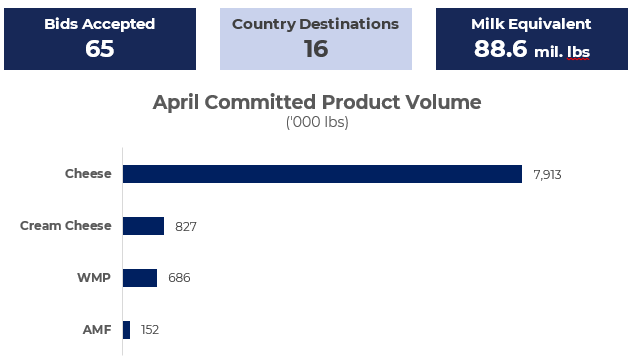NMPF helped lead the dairy community in responding to rapidly evolving circumstances around the spread of the H5N1 virus among dairy cows while advocating for farmers before the federal government and reassuring consumers about the safety of milk throughout April.
With the National Dairy FARM Program available as a resource for best practices and communications efforts that informed everyone from farmers in NMPF member cooperatives to consumers of national and global media, NMPF expertise was at a premium as the dairy industry, the federal government and dairy buyers navigated a landscape that changed significantly over several weeks, culminating in a Federal Order that took effect April 29 covering testing and interstate movement.
Many efforts revolved around clearly understanding the problems posed by the virus and understanding those problems for what they are, and what they are not.
“Since this virus was first discovered in cows, H5N1 in dairy cattle has been primarily an animal health concern,” said NMPF President and CEO Gregg Doud in a statement released April 24, the day USDA announced testing requirements for lactating cows traveling interstate.
“USDA, FDA and scientific research has established what accumulated science indicated all along: The consumer milk supply is safe. Pasteurization renders the H5N1 virus, like other viruses, inactive, an important reminder to consumers of its value as a basic safeguard for human health. We appreciate that these agencies are sharing this message, which will help alleviate any concerns consumers may have.
“That said, the presence of this virus in dairy herds, as well as dairy farmers’ own commitment to animal and human health, makes USDA’s actions on testing and interstate travel appropriate. Dairy farmers stand ready to take a proactive approach to ensuring that we better understand the spread of the virus, do what we can to limit that spread, and ensure the health of our animals and workers.”
As NMPF Chief Science Officer Jamie Jonker served as a go-to resource for public information in the evolving virus situation, discussing dairy-farmer actions and concerns for National Public Radio, the Washington Post, Science Magazine and other outlets, NMPF members were kept informed in real time via fast-moving member alerts.
NMPF also organized three webinars focused on different aspects of High Pathogen Avian Influenza in dairy cattle relevant to members; convened its Co-op Communicators Committee to share media strategy and make NMPF co-op resources available; and served as a shield for members as they faced often-unanswerable questions in an at-times challenging media spotlight.
In addition, NMPF’s HPAI resources page was the most-viewed page on NMPF’s website in April, drawing more page views than the homepage itself – the first time a page other than nmpf.org was most-viewed for the month since the launch of NMPF’s Covid resources page in 2020.
April ended with the new rules on interstate cow travel and testing, while FDA tests showing the effectiveness of pasteurization in killing the H5N1 virus in milk helped allay consumer concerns. Still, HPAI as a dairy concern shows little sign of abating.







